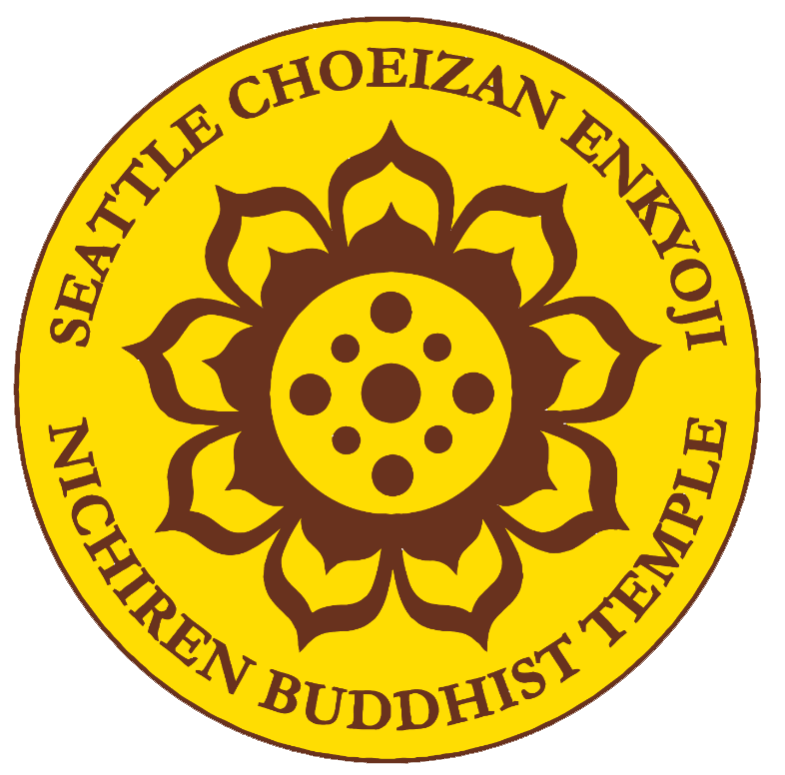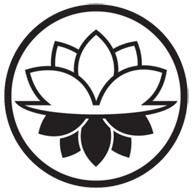
URABON-E (Obon)
Hello everyone, we are just preparing our home and the temple for our annual Obon event. Unfortunately, this year we cannot get together and do many things to celebrate our holidays. I look forward to the future, when we can meet together again as a Sangha Community and celebrate.I am writing this blog entry to give you the basics of Obon, so that you can celebrate it at home as well. I hope that all of your will take some pictures and share them with our members on our social media. It would be so great to see everyone observing this important holiday this year from Thursday, August 13th- Sunday, August 16th.
If you have any questions, please feel free to contact me at seattlebuddhist@hotmail.com
Every year, we have important events in Nichiren Buddhism. Obon is one of those big events.
History
In Japan, Obon started around the time of the Suiko Emperor, 606 A. D. Nihon-shoki; the oldest Japanese history recorded that Obon took a firm hold on the Japanese lifestyle in the Heian Era (794-1185) and the Kamakura Era (1185-1333). Also, Nichiren Shonin often mentions Obon in his writings. During the Edo Era (1600-1867), Obon became more active as a folk event and people visited their relative or friends house and exchanged presents. In the Kansai region they exchanged Somen noodles and in the Kanto region they exchanged rice or flour. This exchange present is called “Bonrei” or “Ochugen”. This Ochugen continues as a custom even today.
The time to hold Obon is different depending on the Reign. Before the Meiji Era (1868-1912) Obon was held on July 15th because Japan used the lunar calendar. After the Meiji Era, Obon was held on August 15th because of the solar calendar. Now around the Tokyo area it is held in July, but other areas hold in August. Obon in August is called, “A month late Obon”. In Japan the lunar calendar still coexists with the solar calendar.

The Story of Obon
The formal name of Obon is “Urabon-e”. This comes from the Sanskrit “Ullambana”. It means “Extreme suffering like hanging upside down”. There is a well-known story about the Buddha’s disciple which is how and why Obon was originated. “2500 years ago, when the Buddha was still alive, there was one disciple, who had supernatural powers. It is said that he is the top disciple of supernatural powers and that he could see the future or the past, even all spiritual worlds, as well as Hell. His name was Mokuren. When he was young, his mother had died. Since he obtained his supernatural powers under the Buddha’s training, he was concerned about his mother and tried to check where his mother was located. First, he searched the top level, the Enlightened World but he could not find her. Then he searched the middle level and still he could not find her. Finally, he found his mother in the lower level, which is the Gaki suffering world, just before Hell. He was so upset, because she was hanging upside-down and suffering.
She looked miserable; her stomach was swollen, her face was dark, and the muscles had dropped, her eyes were sunken because of starvation. So he tried to feed her some food with his supernatural powers; first he tried to give her some food – but when she tried to approach to her mouth with the food it turned into fire and she got burnt. He was terribly upset and tried to feed her cold water – but as before when she tried putting the water to her mouth it turned to fire and she was burned seriously. Mokuren rushed to the Buddha to consult about his
mother and then the Buddha asked him, “Did you offer food or water to anyone else?”
Mokuren replied, “No, just my mother”. The Buddha said, “Your mother dropped into the Gaki suffering world because she was very stingy and did not share with others. If you want to save your mother, you should feed not only your mother but all suffering spirits.” The Buddha, advised Mokuren to invite as many monks as he could and prepare as much food and water as he could and then hold a service for all suffering spirits. Mokuren invited the monks when their summer training was completed on July 15th. Once Mokuren followed the Buddha’s advice, his mother was able to have water and food and she also moved up to a better level of the spiritual world. Since that episode, July 15th became an important day to save all suffering spirits and became known as Obon. In Buddhism we are able to save all suffering spirits even spirits who have dropped into hell.

MUKAEBI (Welcome Light) & OKURIBI (Farewell Light)
On the evening of the first day, the 13th, people hang a lantern with a candle outside the main entrance which is a gesture to invite the spirits to our home. Just like the lights at the airport to guide aircraft to the runway before landing. On the final day, the 16th, people prepare a
farewell ceremony, once again hanging a lantern with a candle at the same entrance as on the first day. They also make a small boat or container with a candle and some food to flow on the water. That same night, people release the boat into the river. We believe that all spirits come down to this world through the river and also return through the river. Many small lanterns many be seen slowly flowing down to the ocean through the many rivers. The view looks like a fantasy world.
HATSU-BON
After a funeral and the 49-day Service, the first Obon for the deceased and the family is called Ni-bon or Hatsu-bon which means “new Obon”. In Hatsu-bon the deceased returns to his family home for the first time. The family should prepare Obon more strictly and attend an Obon Segaki special service with a special prayer.

BON-ODORI (Bon Dance)
The offerings to the spirits are not only prayers and food but also dance. Around Obon time, all people – men, women, young and old gather and dance to together with traditional music and show the ancestors. This dance became very active during the Edo Era. Why did this dance become so popular? In those days because of the influence of Confucianism the shogunate prohibited young men and women to have premarital association, but only during Obon they could dance together openly. At present, in Japan, this dance has become a summer entertainment for us.

PRAYER
O-Bon is a spiritual event to respect and give gratitude to our ancestors and to pray for all spirits. Why should we respect our ancestors? There is no complicated reason; all we require is a respect and gratitude sense for our ancestors and we should realize how wonderful and precious our life is. If there are no parents, grandparents and great grandparents or ancestors, we would not be here. Also, we should realize that our nature and characteristics have come from the genes of our parents, grandparents and great grandparents or ancestors. In other words, we should accept our genes as messages and know that we are located at end of the message.
Actually, the closest ancestors that we know of are our great grandparents; we don’t know the older ancestors who came before them. However, because of the unknown ancestors, it does not mean that we do not have respect for them. Although we don’t know our ancestors individually, they know us very well. Therefore, as a mother is concern for her children, your ancestors are concerned about you. In regard to the ancestors, if their children, or great grandchildren or descendants ignore them and do not take care of them by holding a Memorial Service, how sad they are. Nichiren Shonin said, “Even though we take our body from our parents, after your parent’s death if you do not take care of them and your ancestors = no memorial service, no prayers, no respect; do you think that your deceased parents cannot say anything? They will become malevolent spirits and curse not only you but also your children, grandchildren as well as future descendants.”
Cursing means they will punish you with bad things. In fact, it is not a rare case where malevolent spirits have cursed a descendant, for example, meeting with a mishap, accident, sickness, domestic discord, human relations troubles, etc. We tend to see and think of everything based on only visible things, but we never think of spiritual influences. However, you might not believe that unexpectedly there are many cases; most of the happenings that happen around us are affected by spirits. Praying for our ancestors is an important and wonderful thing, however without respect and a sense of humbleness it is difficult to pray for our ancestors. Please try to think and know about your ancestors and raise within you this sense of respect. As in the story of the Buddha’s disciple, when we pray for our ancestors we need to show more compassion not only to save our ancestors but all suffering spirits too, and then we will be able to save and make peace for our parents, great grandparents and ancestors. Buddhism teaches us about entire happiness rather than partial happiness.
Therefore, we should think of a way to make all beings happy rather than only our own happiness. This is a faithful way of life as a Nichiren Buddhist. The O-Bon Segaki Special Service will be observed on this Sunday August 16th,2020. Around that time, together with compassion, please pray for your ancestors and as well as all suffering spirits. This Segaki Service hold special merits for everyone, if you you are a member we will be praying for you family ancestors. If you have specific names of people, please fill out the Obon form on our website. We ask a donation of $5 per name that will be read during the ceremony.
http://20z.6c2.mywebsitetransfer.com/forms/
Gassho…

